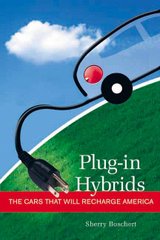The California Air Resources Board (CARB) met on Thursday to discuss the Zero Emission Vehicle regulation and the revisions staff was tasked with exploring for 2015 and beyond. Plug In America President Dan Davids offered testimony applauding CARB's achievements, but faulted the agency for skewed priorities and reliance on unreliable information and projections. Mr. Davids said CARB's resource allocation has favored fuel cells and hydrogen over plug-in electric by 75% to 25%, based on conversations with Legislative Director Jay Friedland. Chair Mary Nichols said that isn't true. CARB staffer Elise Keddie said Friedland had taken back his assertion regarding a 75/25 split. Friedland sent an email immediately for the record clarifying the conversation with Ms. Keddie and indicating he stood by Plug In America's analysis. He is awaiting a response.
The representative from Honda, the most consistently pro-fuel cell automaker, said FCVs are "not yet ready for mass production" and that much work needs to be done "before even slight volume increases." The Nissan rep touted the imminent LEAF, although without the enthusiasm of the Nissan employees I've met over the recent months. Sierra Club, NRDC, UCS and Friends of the Earth each raised serious questions about the direction of the ZEV regulation, signaling a renewed interest in plug-in electric vehicles for the near-term GHG reduction benefit that could be achieved.
CARB's policies do not appear poised to utilize the historic opportunity offered as plug-in electric vehicles are achieving commercialization. Given their professed "technology neutrality," one might expect to see the state agency newly responsible for greenhouse gas reduction policy to aggressively support the zero emission vehicle technology arriving in the market soonest. Yet much of the white paper simply reaffirms CARB's intention to focus on hydrogen and fuel cell vehicles, despite their own belief that even pre-commercialization of fuel cell vehicles remains over five years away. CARB's continued unbalanced allocation of resources is reflected on its website homepage and in the white paper itself (for example, 658 words are devoted to hydrogen infrastructure; 109 to BEV infrastructure.)
Despite CARB's preference for H2/FCVs, its policies have helped bring major manufacturers back to California with plug-in electric cars. CARB ought to recognize that near-term commercialization of plug-in electric cars is happening. The greater near term carbon reduction benefit of plug-in electrics should not be sacrificed to projections of cost and consumer preferences decades hence.
Friday, December 11, 2009
Subscribe to:
Comments (Atom)


